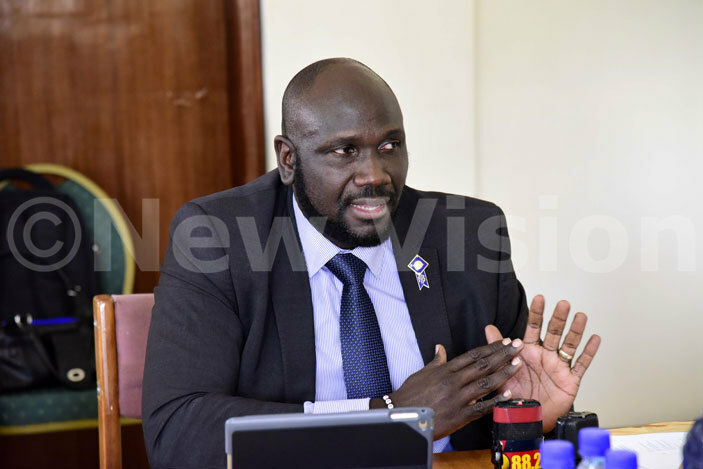LDC to start evening program
To-date, LDC has a monopoly of offering the Bar Course despite lack of capacity to absorb all graduates from the different universities accredited by the Law Council.
PIC:LDC Director, Nigel Frank Othembi appearing before the Parliament committee. Photos/ Kennedy Oryema
The Law Development Center (LDC) is set to take another leap in meeting the increasing demand for the Bar Course leading to the award of a postgraduate Diploma in Legal Practice by introducing an evening program starting next year.
LDC was established in 1970 by the Law Development Centre Act as a government-owned institution of higher learning responsible for "research, law reform, publications, law reporting and community legal services.
To-date, LDC has a monopoly of offering the Bar Course despite lack of capacity to absorb all graduates from the different universities accredited by the Law Council.
"In principle, the Law Council has sanctioned the policy and all that is required are few modalities on the program. So, next year, we shall have in place an evening Bar Course program," LDC Director, Nigel Frank Othembi told lawmakers sitting on the legal and parliamentary affairs committee of Parliament on Tuesday.
With the top brass of LDC in tow, Othembi was at Parliament to articulate the mandate of LDC and challenges facing the institution to lawmakers sitting on a committee that carries out oversight functions over it.
However, Othembi was categorical that introduction of an evening program does not mean that there will be an exponential increase in the number of students admitted to LDC for the Bar Course.
"Those who pass pre-entry will have a choice either to study day or evening," Othembi later told New Vision.
According to Othembi, "there are slightly over 400 students at LDC."

With the advent of private universities close to two decades ago, Makerere Universities monopoly of teaching Law in Uganda was broken.
Over the years, the Law Council has accredited eight other universities including Kampala International University, Uganda Christian University (Mukono), St. Augustine University, Busoga University and Islamic University in Uganda. Others include Uganda Pentecostal University and Nkumba University, Entebbe.
This has resulted into more law graduates seeking to enroll for the Bar Course. MPs heard that slightly over 1700 graduates sat for pre-entry to LDC at the beginning of this month yet LDC is capable of admitting slightly over 400 of those.
LDC's change of policy is set to benefit hundreds of graduates in full time employment who are faced with a catch-22 situation when it comes to enrollment for the mandatory Bar Course if one is to qualify as an advocate of the High Court.
The Bar Course if full time - meaning that those in employment have to resign their jobs.
"The tuition at LDC is sh3.8m so it's understandable that people study without necessarily resigning," Othembi said.
At the tail end of the ninth parliament, a number of lawmakers on the committee - many of them practicing advocates led by the current chairperson of the committee, Jacob Oboth-Oboth pushed for a reform of LDC for it to be in sync with the current dynamics.
One of the suggestions mooted by Oboth-Oboth and lawmakers like Wilfred Niwagaba, Abdu Katuntu and Fox Odoi was establishment of LDC regional centers, dropping of a policy that obliges students to re-sit all five papers if only one paper is failed and possibility of an evening program for the Bar Course.